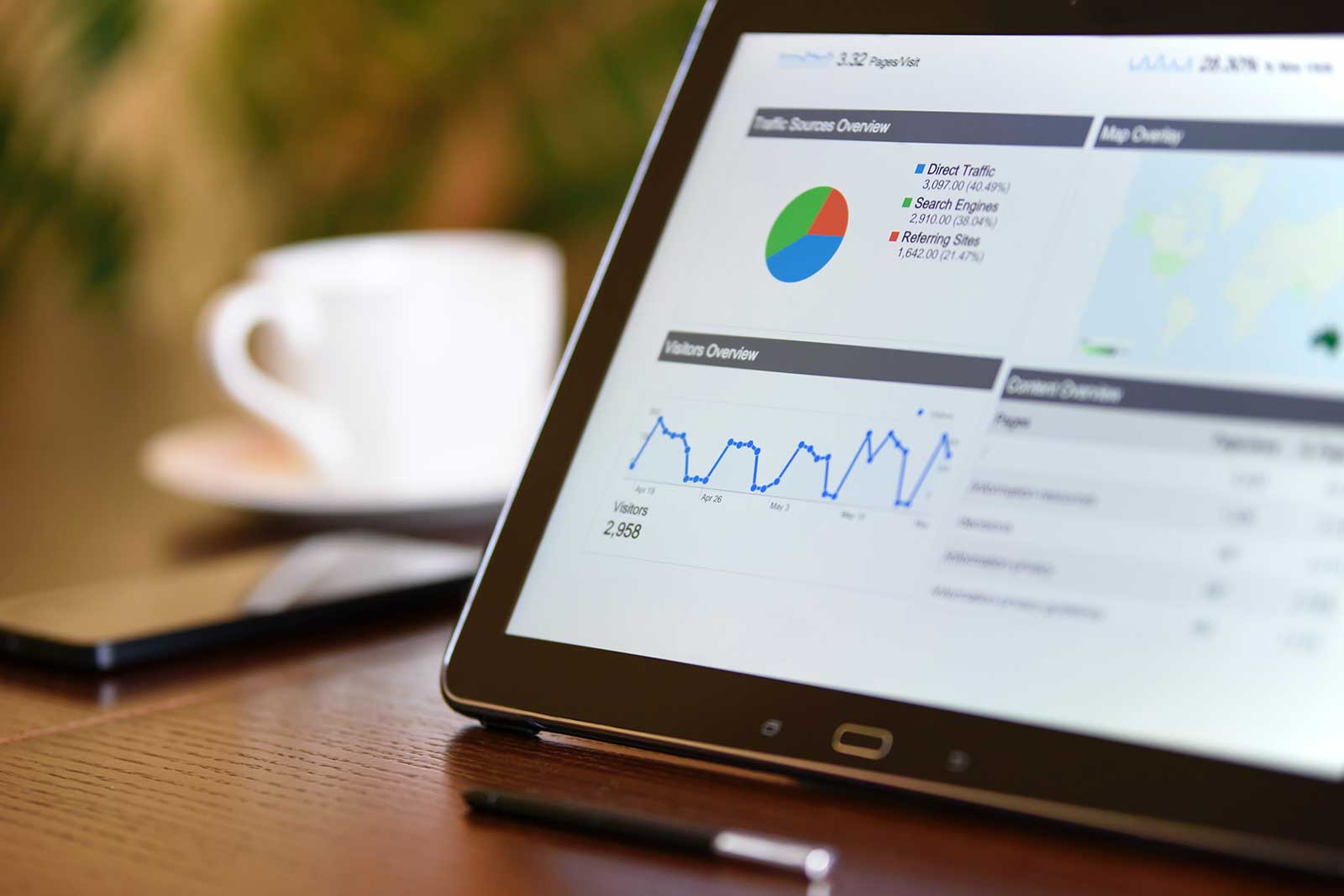You can’t know what’s working in your business if you can’t put some black-and-white figures on it. Only with defined metrics can you define success.
Some companies used to take the ‘spray and pray’ approach to marketing. But as customers demand ever more personalised experiences, data-driven marketing has come to the fore and revealed the enormity of its potential.
As long ago as 2013, a study by Janrain demonstrated that 74% of online customers felt frustrated when content appeared that didn’t align with their interests. And in 2016 OneSpot showed that almost half of customers wouldn’t read or even engage with content if it was irrelevant to them. So we can only imagine how much more pronounced these effects must be today, after a decade’s worth of data-driven marketing has exponentially increased customers’ expectations of bespoke online experiences. If businesses are to have any shot at competing in this incredibly competitive marketplace, they must therefore focus more on generating, analysing and applying data to their marketing campaigns.
What is data-driven marketing?
Marketing campaigns generate data in more ways than most people can imagine, so it makes sense to then draw on those insights and leverage them next time around. That’s data-driven marketing: using data to inform all marketing decisions. It prioritises customers’ data above all other kinds to ensure marketing efforts are relevant to their interests and behaviours.
Data-driven marketing makes it so much easier to get everything in place: your budget, your products, your creative team. Without customer data, your marketing campaigns will always be at least something of a shot in the dark. But with the right data-driven marketing strategies, you can start developing and releasing campaigns that speak directly to your target audience, resonate with their wants and aspirations, and build precious trust and loyalty among your customer base.
What are data-driven marketing best practices?
No matter your business, product or campaign, there are certain tried and tested ways to get the most out of your customer data when incorporating it into your marketing efforts.
Manage your data
Data-driven marketing is an iterative process. That means it’s always evolving, its scope always expanding. You therefore need not only excellent data collection, but also high-quality data management. This is critical to the success of your data-driven marketing efforts because it provides crucial customer insights, highlights new marketing and acquisition opportunities, and saves you both time and money.
Know your audience
The success of your data-driven marketing campaigns depends on the accuracy of your customer data. You could have the most advanced data collection in place, but it would count for nothing if the data didn’t actually reflect your target audience. So before you start applying data-driven marketing strategies to your business, make sure you’re exceptionally familiar with your customers. Research your ideal customers, build your buyer personas, and educate your teams on these profiles. Moreover, reach out to current customers to better understand who’s actually buying your products. You could even hold focus groups to question a live audience and receive raw and unedited feedback.
Stay compliant
Your data is worthless if it doesn’t comply with the law by respecting your customers’ privacy. In recent times organisations and entire countries have cracked down on how businesses can use their customer data, reflected in laws like GDPR and the CCPA. These protect customer data and therefore customers, and hold companies accountable. Complying with these laws therefore makes your marketing more transparent, trustworthy and effective.
What strategies does data-driven marketing involve?
Today, personalised marketing goes quite a bit further than just greeting a customer by name via email. Now it’s all about delivering the right message at the right time—and on the right channel. This is where data-driven marketing is simply unbeatable in its efficacy.
But it can be a little overwhelming trying to work out how to start, and visualise where data-driven marketing actually fits in with your broader marketing efforts. So let’s check out some surefire ways to effectively leverage your customer data—and without compromising on audience engagement. It should be noted, of course, that these methods complement one another, and when implemented in tandem can produce results greater than the sum of their parts. So consider combining a few as part of your bid to personalise your marketing efforts.
Retarget your advertising
Retargeting, sometimes called remarketing, is an imperative for all marketers, but especially those operating across multiple channels. It enables you to keep your brand front-of-mind among individuals who have expressed interest or in some way engaged with your products or services. If someone browses a specific product on your site, their customer data means you can then resurface that product to that individual through such strategies as social media advertising and abandoned cart email marketing.
Segment your audience
Different customer groups exist within your wider target audience, so it’s up to you to delineate those boundaries. Targeted and personalised messaging goes a lot further than a general broadcast, and segmentation helps you reach the right people at the right time with the right message. If your store sells both men’s and women’s clothes, you’d need two respective sets of messages. And if your store has multiple geographies, you’d then need men’s and women’s messaging for each location.
There’s really no end to how granular you make your segmentation, because of course your target audience differs not only by their demographics but also by their preferences and pain points, not to mention where they are in the buyer journey. Data-driven marketing empowers you to precisely segment your audience, as well as automate your segmentation efforts. You’ll find this especially useful for email and social media marketing.
Align your teams
Customer data has so many more uses than just those of your marketing team—it can be leveraged by your sales and support teams, too. Moreover, its versatility can actually help you bridge the gaps between these teams, aligning their efforts and solidifying an overarching company-wide strategy. For example, you might invest in a customer data platform (CDP), which aggregates customer data to create individual customer profiles to use across the business, which negate the risks of disparate teams working with siloed customer information. By centring your marketing, sales and support teams around a CDP, you ensure your entire organisation is working with the same data, and thereby presenting a logical, consistent and cohesive customer experience.
Optimise your content
Without customer data, your content creation processes remain largely guesswork. Data-driven marketing provides that all-important context for your content, helping you understand and serve your audience through your advertising and the content you publish. Whether your data is demographic or psychographic, it provides valuable insights into how to best craft your content such that it addresses customers’ questions, pain points and goals.
Delight your customers!
Shoppers are browsing on multiple platforms, multiple devices—but they don’t want to be treated as multiple customers based on these behaviours. They yearn for a seamless experience no matter the channel. Data-driven marketing means you can accurately identify these customers no matter which device they’re browsing on, and provide them with a superlative omnichannel experience. This doesn’t just save you time and resources, but also refines the customer experience beyond anything many shoppers will have known before, and demonstrates to your audience that you’re paying attention to their needs and recognising their behaviours.
What are some great data-driven marketing tools to get started?
If you’re not sure where to begin with your data-driven marketing, the following tools are renowned for being easy to use as you learn how to track, manage and apply your customer data.
Google Analytics
Analytics is a leading tool for tracking and reporting on website user behaviour, empowering you with a greater understanding of your traffic, visitor sessions, bounce rates and customer demographics. Run reports on your conversions, acquisitions and user behaviour flows, and connect it to your Google Ads account to track and report on your ad performance. Best of all? It’s free!
Hubspot Marketing Hub
Whether you want to start out with the free version or go all the way with the premium, Marketing Hub is a brilliant tool for businesses looking to take a deep dive into the world of data-driven marketing. It connects to Hubspot CRM so you can track, analyse and deploy your customer data all from one place. Create optimised content, monitor social media activity, run retargeting ad campaigns, and launch segmented email campaigns.
Buzzsumo
Buzzsumo is a paid-for tool that enables you to track your digital brand performance, optimise your web content, and better understand the competition. Leveraging your customer data, Buzzsumo researches leading keywords, content types and published content to throw light on trends that could inform your content strategy. You can even track key metrics around your competitors’ content to see how it compares to yours.
Are you ready to put your data in the driving seat?
Your customer data has the power to transform generic broadcast-based marketing into poignant and personalised messaging that truly resonates with your audience. As cofounder of Pixated, a performance marketing and web design agency, I know that understanding your customers not only allows you to grab their attention and provide myriad solutions for their needs, but also boosts your revenue and unites your teams like never before. In that way you give ambitious brands the tools they need to build sustainable and scalable growth, enhance their visibility, and revolutionise their sales and lead gen. It’s a seriously rewarding endeavour!






